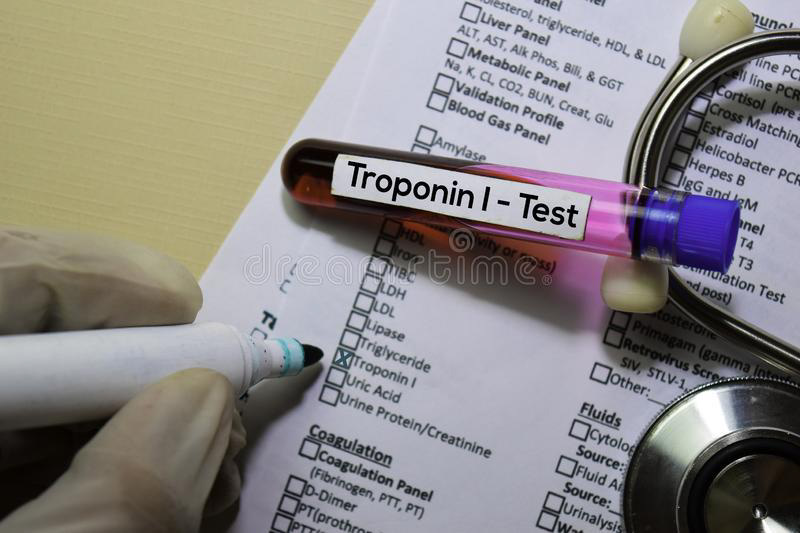Joseph R. Anticaglia MD
Medical Advisory Board
“Doctor, am I having a heart attack?” Everyday thousands of patients with chest pain ask emergency department (ED) doctors that question. With advances in medical research and a blood test, doctors can advise patients with a high degree of confidence: “You’re not having a heart attack.”
Coronary heart disease continues to be the number one killer in the United States. Every 46 seconds in the U. S. someone has a heart attack according to the CDC. Early recognition by patients of the symptoms of a heart attack, also known as acute myocardial infarction (AMI), propel them to the hospital for treatment. The main symptoms of AMI. are:
- chest pain or discomfort
- pain or discomfort in other areas such as the arm, back jaw, or neck
- shortness of breath
- nausea vomiting
- feeling weak, faint, or lightheaded
- extreme tiredness
- About 20% of heart attacks are silent—the cardiac damage is done, but the person is not aware of it
Many years ago, Pete, a 46 year old construction worker, complained of shortness of breath, feeling weak and chest discomfort. He called 911 and within two hours of having those symptoms, was taken to the hospital’s emergency department. The ED doctor examined him, reviewed his medical history, lab tests and electrocardiogram. The findings did not indicate he had a heart attack.
He was discharged from the hospital but nine hours later he was re-admitted to the ED with crushing chest pain, difficulty breathing and pain down his left arm. Lab tests and electrocardiogram demonstrated that he had suffered a severe myocardial infarction. Pete’s experience and that of other patients have incentivized researchers to create a reliable test that can inform doctors if a patient has had — or has not had — a heart attack.
One might consider heart attacks and coronary artery disease as a ‘plumbing’ problem. The pipes in this case are the coronary arteries which become narrowed or blocked. The narrowing, stiffening and plaque formation in the arteries prevent sufficient oxygen and nutrients reaching the cardiac muscle. The damaged heart muscle spills out a protein called troponin into the bloodstream.
Troponin Test
The troponin test measures the level of troponin in your blood. It is principally used to diagnose or rule out a heart attack. A needle is inserted in the arm or hand to obtain a blood sample.
In addition to this test, your doctor routinely orders an electrocardiogram to evaluate the heart’s electrical activity and other blood tests that might point to cardiac damage. Let your physician know what prescription and non-prescription medications you are taking. Biotin, vitamin B7 can interfere with the troponin test.
Troponin is a protein normally found in healthy hearts and is involved with cardiac muscle contractions. It is not normally found in the blood. in any significant amounts. However, if the cardiac muscle is damaged, as from a heart attack, troponin escapes into the bloodstream wherein elevated levels can be detected.
There are two types of troponin that doctors look for if they suspect a person has suffered damaged to his heart muscle. A blood test is used to determine the two types and levels of troponin.
- Troponin I (cTnI) uses the letter I and it’s unique to heart muscle.
- Troponin T (cTnT) uses the letter T, has a unique structure and it exists in very small amounts in other muscles.
- Three to twelve hours after a heart attack, the troponin levels increase markedly.

According to Frank Peacock, MD: “If the troponin level is elevated, you’ve had a heart attack. If the troponin level is not elevated, one is uncertain if you’ve had a heart attack.” The emergency department doctors and staff will measure the troponin level several times and if after three hours the troponin level has not become elevated, you did not have a heart attack.
The high sensitivity troponin test helps doctors decide which patients with chest pain can be safely discharged from the emergency department, with a high degree of confidence that they did not have a heart attack. Also, the troponin test helps doctors make an early diagnosis of heart attacks, making it possible to quickly initiate treatment to get blood flowing to the damaged heart muscle. In short, this test improves cardiac care, facilitates triaging patients in the emergency department and it is cost effective.
References
- CDC; Heart Disease Facts; October 14, 2022
- W. Frank Peacock, MD; Myocardial Infarction Can Be Safely Excluded by High-sensitivity Troponin I Testing 3 Hours After Emergency Department Presentation: MI EXCLUSION By hsTnI 3 hours after ED presentation; March 2020 Academic Emergency Medicine 27(8)
- MedlinePlus; Troponin Test; 10/10/2021
- Pam R. Taub, MD; w. W. Frank Peacock, MD; Improve triaging in the ED. A new assay delivers a higher standard of care. Cap Today
- James J. Januzzi, Jr. MD; Causes of Non ACS (Non-Acute Coronary Syndrome) Related Troponin Elevations; American College of Cardiology. Sept. 8, 2010
This article is intended solely as a learning experience. Please consult your physician for diagnostic and treatment options.

